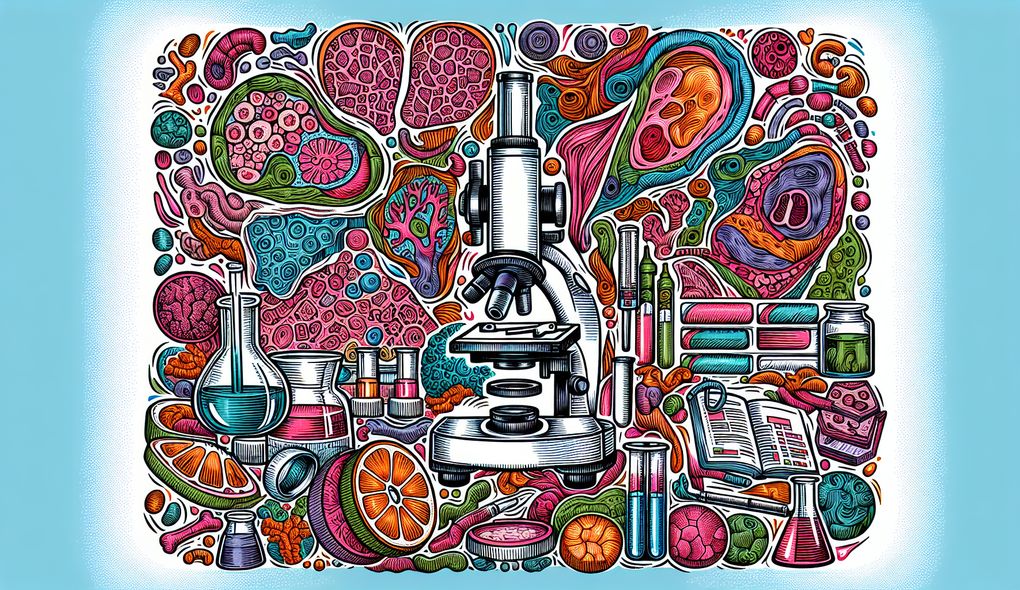What is your approach to communicating complex medical information clearly and effectively?
INTERMEDIATE LEVEL

Sample answer to the question:
My approach to communicating complex medical information clearly and effectively is to break it down into simpler terms and provide relevant examples. I believe that using analogies and visuals can help make complex concepts more understandable. Additionally, I always strive to listen actively and address any questions or concerns that may arise. By creating an open and supportive environment, I encourage dialogue with colleagues and patients to ensure effective communication.
Here is a more solid answer:
My approach to communicating complex medical information involves several key strategies. First, I ensure that I have a deep understanding of the topic myself by staying up-to-date with medical literature and attending relevant conferences and workshops. This helps me develop a strong foundation of knowledge and enables me to speak confidently and accurately about the subject matter. Secondly, I believe in using clear and concise language when discussing complex concepts. I avoid medical jargon whenever possible and strive to explain things in a way that anyone can understand. I also make use of visual aids such as diagrams and models to help illustrate my points. Furthermore, I actively listen to my audience and encourage them to ask questions or seek clarification if needed. By creating a two-way dialogue, I can ensure that my message is being received and understood. Lastly, I collaborate with other healthcare professionals to gather different perspectives and insights. This interdisciplinary approach not only enhances the accuracy and comprehensiveness of the information I communicate but also fosters a sense of teamwork and shared learning.
Why is this a more solid answer?
The solid answer addressed the evaluation areas more comprehensively by providing specific strategies and examples. It highlighted the importance of staying up-to-date with medical terminology and advancements, which was missing in the basic answer. However, the answer could be improved by incorporating more details about the candidate's past experiences and achievements in effectively communicating complex medical information.
An example of a exceptional answer:
In my approach to communicating complex medical information, I prioritize tailoring my message to the specific audience. This involves assessing their level of understanding and adapting my language and delivery accordingly. For instance, when communicating with patients, I avoid using technical terms and instead use relatable analogies and real-life examples to help them grasp the key points. On the other hand, when communicating with fellow healthcare professionals, I use more technical language and provide in-depth explanations to ensure accuracy and facilitate collaboration. Additionally, I believe that visual aids play a crucial role in conveying complex information effectively. I have developed engaging and informative presentations and interactive workshops that utilize diagrams, animations, and multimedia tools. This visual approach not only enhances understanding but also promotes engagement and retention of the information. Furthermore, I actively seek feedback from my audience to gauge their level of comprehension and make necessary adjustments to my communication style. By continuously refining my approach and incorporating lessons learned, I am able to consistently improve the clarity and effectiveness of my communication of complex medical information.
Why is this an exceptional answer?
The exceptional answer demonstrated a deep understanding of the evaluation areas, providing specific examples and showcasing the candidate's ability to adapt their communication style to different audiences. It also highlighted the use of visual aids and the importance of seeking feedback, which further enhances their approach to communicating complex medical information. The answer could be further improved by incorporating personal achievements or experiences where the candidate successfully communicated complex medical information.
How to prepare for this question:
- Stay up-to-date with medical terminology and advancements in the field of pathology through continuous learning and professional development opportunities.
- Develop strong listening and observation skills to effectively gauge the understanding and engagement of your audience.
- Practice simplifying complex medical concepts by explaining them to others who may have limited medical knowledge.
- Seek feedback and constructive criticism from colleagues or mentors to identify areas for improvement in your communication skills.
- Create a portfolio of visual aids and interactive presentations that can be used to effectively communicate complex medical information.
What are interviewers evaluating with this question?
- Communication skills
- Knowledge of medical terminology
- Ability to simplify complex information
- Listening skills
- Collaboration skills

